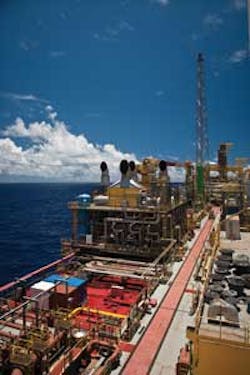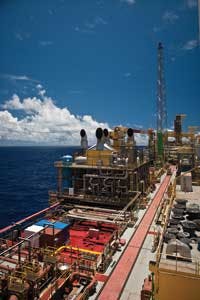Looking for solutions in a low oil price environment
One of the chief benefits of age is experience. People learn valuable lessons throughout their lifetimes that they can apply later to resolve future challenges. Right now, the industry is looking for ways to survive the current low oil price environment. Choices include scaling back operations, reducing personnel, and possible M&A activity. The cost is not only lost human capital but also lost business opportunity as well.
This is the dilemma faced by service and supply providers in particular. If they reduce headcount to be able to cover their present workload, they have no opportunity to grow by capturing share because they do not have the resources to handle more work if they get it. For the service and supply sector to grow, the sum of their resources must necessarily exceed the sum of the available work.
Capital-intensive enterprises suffer most. Companies with large manufacturing plants, shipyards, extensive frac fleets, or drilling units have large debt that must be serviced. The piper must be paid even though the asset is stacked. Companies with highly-skilled technical staff risk losing their competitive edge through ill-advised lay-offs.
Operators have protected themselves somewhat by hedging their forecasts with artificially low wellhead prices. When oil was trading above $120/bbl, some companies were preparing exploration and development plans based on $80/bbl oil. This works for a while, but at $45/bbl, many plans must be shelved.
Intense pressure is mounting for the service and supply sector to cut prices. In some cases, there may be room to do so, but a large sector of the business is already at low-margin. Companies may be hard-pressed to cut prices to the levels demanded by their clients. A solution proposed in an earlier column is for the service sector to reduce its costs by adopting condition-based maintenance (CBM). Proven to save millions, a properly-run CBM program can maintain equipment at peak efficiency at a fraction of the cost of time-based systems. Thinking outside the box has enabled several companies to save considerable amounts of money. One tactic, also proposed in an earlier column, is to perform rig maintenance above-deck using rope-access instead of costly, awkward scaffolding. Companies skilled at rope-access hire experienced mountaineers or cliff-climbers to reach pieces of structure or equipment that require maintenance but are elevated in the derrick. One worker with such skills can do work previously requiring a dozen or more, not to mention hiring the scaffolding and trying to work around it.
Many large service companies offer integrated project management services to address the accountability issue. They are given a project, a set of objectives and standards, and told to complete the work on time and on budget, hiring or buying any services or equipment needed to fill in any gaps. Chain of accountability is one measurable value that saves significant amounts of money and personal headaches with this practice.
Operators need to cut costs as well. Shell used an innovative technique to drill development wells on its Parque das Conchas (BC-10) project offshore Brazil. They were able to drill in 7,400 ft (2,250 m) of water using a third-generation semisubmersible drilling unit, the Global Santa Fe's Arctic 1, a rig normally rated for a maximum of 3,100 ft (945 m) of water. They accomplished this by using pre-set moorings and a dry BOP stack. Considerable money was saved by adapting conditions to be able to use this drilling unit.
Sometimes operators need to spend money to save money. In the Parque das Conchas project, The company opted to drill with a more expensive real-time rotary steerable system but one that enabled them to geosteer into reservoir sweet spots and maximize reservoir contact. The added production potential more than justified the extra costs.
Again, one of the chief benefits of age is experience. People learn valuable lessons throughout their lifetimes that they can apply later to resolve future challenges. Having survived four major downcycles, this author suggests the industry look outside the box for solutions. Continuing to do the same things that were profitable at $120/bbl oil will bankrupt companies at $45/bbl oil. Make sure you get what you want at the end of the day.


